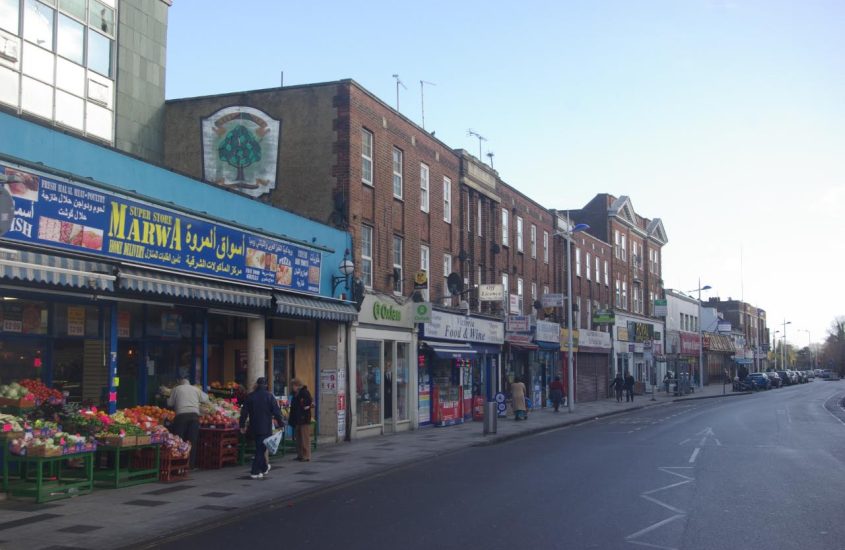Beyond the ‘Slough of Despond’


Why Slough was the perfect setting for my anti-hero Ronald Jones
I chose Slough as the home town for the anti-hero in my thriller ‘The Repurposed Spy’, Ronald Jones. Why? More than anything, because it struck me as being as mundane and apparently uninteresting as Jones himself – and somewhere that’s the antithesis of tension, action and adventure. I could equally have placed him in Luton, or Stevenage, or Gravesend. It wasn’t until my book was published that I thought seriously as to why I’d chosen Slough. It was easy to find the subconscious reasons – but then I discovered it’s a much more interesting place than I’d thought, and there are many good things about the town.
Exploring the good and the bad of Slough: A closer look at a misunderstood town
Slough, a town about 30 miles to the west of London, has been the subject of much writing over the last century – and more than its fair share of ridicule. No doubt its residents view it positively, as a significant hub of commerce and industry, helped by its proximity to Heathrow airport, and a desirable residential area with good commuter connections to London.
But ask someone who’s never been there, and it’s likely they’ll only have heard of the negatives. It’s quite common to say that someone who is extremely depressed is in “the slough of despond”. This slough, or “swamp of despair”, is a fictional, deep bog in John Bunyan’s allegory The Pilgrim’s Progress, into which the protagonist Christian sinks under the weight of his sins and his sense of guilt for them.
The real Slough itself features in a lot of literature. Perhaps most famously, the great poet John Betjeman wrote in 1939:
‘Come friendly bombs and fall on Slough,
It isn’t fit for humans now’.
It’s a wonderful poem. Betjeman famously lambasted the town’s sprawling industrial landscape and factories, but he wasn’t the first. Earlier in the 20th century, Rudyard Kipling wrote a poem “Taylor’s Trade”, lamenting the changing traditional lifestyles of the local people and the slow transformation from rural to industrial. His work paints an unflattering picture of the town, with references to a ‘workman’s town’, ‘black dust’, and saying the town was a ‘poor place’.
Novelist Arnold Bennett wrote a series of stories set in the town, including ‘Clayhanger’ (1910) and ‘Hilda Lessways’ (1911). He portrayed a back-biting, gossipy society in which the inhabitants were kept down by a lack of ambition and a spirit of defeatism.
In 1938, the poet William Empson, in his poem “Slough, which has become an iconic work of British literature, described the town as a ‘hell’. The poem is an indictment of working-class life in a place with ‘no evident soul’. Empson’s poem was followed by those of other writers such as Ted Hughes, whose ‘Out’ (1951) laments the ‘industrial no-man’s-land of Slough’.
From Betjeman to Gervais: The cultural legacy of Slough
In 1932, the classic BBC radio comedy ‘The Goon Show’, that featured Peter Sellers, satirised the town and its people in the skit ‘Rawlinson End’. Some seventy years later, English writer and comedian Ricky Gervais created ‘The Office’, a sitcom set in a fictional company in Slough. The show explored the mundane lives of its characters and offered a unique insight into the idiosyncrasies of British office life, often with a wry sense of humour. Though it was never intended to be a commentary on Slough, it has nevertheless left an indelible mark on how people perceive the town. Slough also provided the backdrop for the groundbreaking Netflix series Sex Education, which gained global attention for its comedic yet poignant look at high school life in a small town.
The town’s reputation has even been slurried by music. In 1984, the band Madness released the single ‘One Step Beyond’ which referred to Slough as ‘Slo-o-o-o-ough’ and described it as ‘so bad, it makes you glad’. One could argue this was a clever re-appropriation of the town’s poor reputation, in celebrating Slough’s darkness and offering the listener a kind of sardonic redemption.
Maybe the original trigger for all the sarcasm was simply the name of the town. Slough. The name, derived from the Saxon ‘slawe’, means “muddy bog” (apparently because the river Thames used to overflow there in ancient times). In 1555, this ‘Slawe’ was granted locally to two men who renamed it ‘The Town of Slough’. Over time, the name ‘Slough’ became the popular spelling, although it still has a few variations, such as Slew, Slow and Slo.
One of the worst places to live in England?
Slough’s reputation hasn’t improved over the years.
An annual poll by a satirical website, ilivehere https://www.ilivehere.co.uk/top-50-worst-places-to-live-in-england-2023 has ranked Slough as the 9th worst – but that’s a significant improvement on one earlier year, when it made second place! In 2022, it described Slough as a ‘concrete jungle’ with ‘houses unfit for a dog’. In 2021, when it was 24th on the list, one resident of the town described it as the ‘toilet of Berkshire’.
Slough: A town with a bad reputation or a hidden gem?
But its reputation is unfair. Slough has undergone a significant transformation in recent years. The town is now home to a diverse range of businesses, from tech startups to global corporations. Its proximity to London and Heathrow Airport has also made it an attractive location for businesses seeking to establish a foothold in the UK.


There’s the wide range of amenities and services one would expect for a town of nearly 200,000. In ‘The Repurposed Spy’, Jones taught at a totally fictitious private day school of questionable merit, but I now know that there are several excellent and award-winning ones. I hope that the owners, teachers and students there see no parallels with my descriptions – any are certainly coincidental! Slough boasts several historic buildings, and attractive parks and green spaces, including Salt Hill Park, Herschel Park, and Langley Park, and is home to a vibrant cultural scene, with museums, galleries, and performance spaces. The Slough Museum – that perhaps I should have visited before I wrote about it – is a great place to learn about the town’s history, and there’s a theatre and regular cultural events, including the annual Slough Mela, a celebration of South Asian culture, and the Slough Arts Festival.
And the performing arts have also helped highlight the positives. Slough has featured in several major films, perhaps most famously the classic 1975 flick Monty Python and the Holy Grail, which used the town’s famous railway station as a backdrop for its famous opening sequence. More recently, in 2019 it the town hall and rail station were used as locations for the film adaptation of ‘The Woman in White’ by Wilkie Collins.
Slough – an object of ridicule or an interesting town and an inspirational subject for writers and filmmakers? Either way, it’s a town that is worth remembering.
‘The Repurposed Spy’ by Oliver Dowson is on sale now. To read more, click here.






